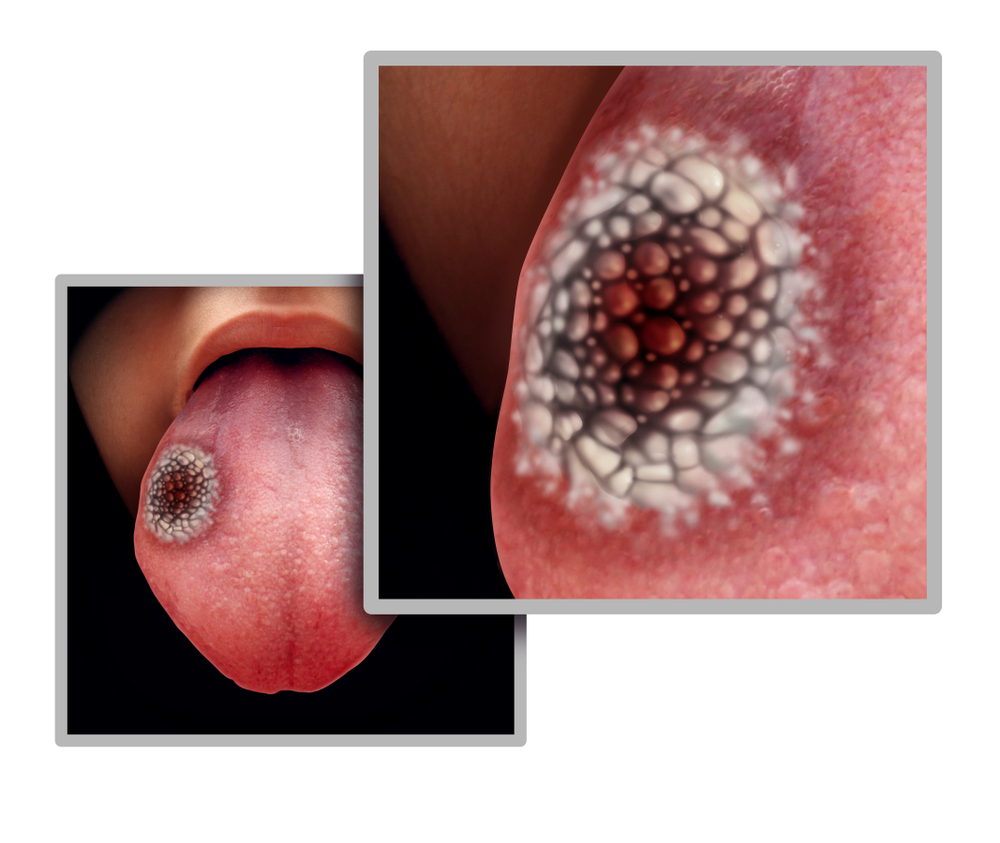Introduction
Tongue cancer is a type of oral cancer that can be deadly if left untreated. It affects the tongue, the surrounding tissue and other parts of the mouth. Unfortunately, this type of cancer is often not detected until it has advanced to an advanced stage. That’s why it’s important to know what to look for and how to treat it early on. In this blog post, we’ll discuss 5 early signs and symptoms of tongue cancer, as well as treatments options available if you are diagnosed with the condition. We’ll also discuss the importance of regular checkups and self-exams in order to identify any changes in your mouth that may be indicative of tongue cancer.
What is tongue cancer?
Tongue cancer, also known as oral cancer, is a type of cancer that develops in the tongue. The tongue is a muscle that helps you to chew and swallow food. It is also used for speaking. Cancer can develop in any part of the tongue, but it is most likely to occur in the front part, where the majority of the tongue’s muscles are located.
Most tongue cancers are squamous cell carcinomas, which means they develop from the squamous cells that line the surface of the tongue. Tongue cancer is more common in men than women, and it is most often diagnosed in people over the age of 50. However, anyone can develop tongue cancer, regardless of their age or gender.
There are several factors that can increase your risk of developing tongue cancer, including smoking tobacco, drinking alcohol excessively, and having HPV (human papillomavirus). If you have one or more of these risk factors, it’s important to be aware of the early symptoms of tongue cancer so that you can seek treatment as soon as possible.
Some of the early symptoms of tongue cancer include:
– A sore or lump on the tongue that does not go away
– Pain or numbness in the tongue
– Difficulty chewing or swallowing
– A change in voice
– Ear pain
If you experience any of these symptoms, it’s important to see a doctor so that they can rule out other potential causes and provide you with an accurate diagnosis
Early symptoms of tongue cancer
Tongue cancer refers to a cancerous growth that occurs on the tongue. The tongue is a muscular organ located in the mouth that is responsible for tasting, chewing, and swallowing food. The tongue is also involved in producing speech. Cancer of the tongue can occur at any age, but it is most common in people over the age of 60.
The early tongue cancer symptoms are often subtle and can be easily mistaken for other conditions or illnesses. It is important to be aware of these early symptoms so that you can seek prompt medical treatment if necessary.
Some of the early symptoms of tongue cancer include:
-A sore or ulcer on the tongue that does not heal within two weeks
-A lump or mass on the tongue
-White or red patches on the tongue
-Persistent pain or tenderness in the mouth
-Difficulty moving the tongue or jaws
-Numbness in the mouth or lips
Treatment options for tongue cancer
If you have been diagnosed with tongue cancer, your tongue cancer treatment will depend on the stage of your cancer and your overall health. Treatment options for tongue cancer include surgery, radiation therapy, and chemotherapy.
Surgery is the most common tongue cancer treatment. The type of surgery you have will depend on the size and location of your tumor. Often, part of the tongue is removed through a procedure called a partial glossectomy. In some cases, the entire tongue must be removed through a total glossectomy. Surgery may also be used to remove lymph nodes in the neck that are affected by cancer.
Radiation therapy uses high-energy beams to kill cancer cells. It can be used alone or in combination with surgery. Radiation therapy can be given externally or internally. External radiation therapy uses a machine outside of your body to target the cancer cells. Internal radiation therapy puts radioactive material directly into the tumor through thin tubes called catheters.
Chemotherapy is a systemic treatment that uses kill cancer cells. Chemotherapy can be given intravenously or orally. Intravenous chemotherapy circulates throughout your body and kills any fast-growing cells, including cancer cells. Oral chemotherapy is taken in pill form and targets only certain areas of your body where there is active disease.
Also Read: How to Rent A Luxury Car For A Glamorous Wedding in Bangalore?










